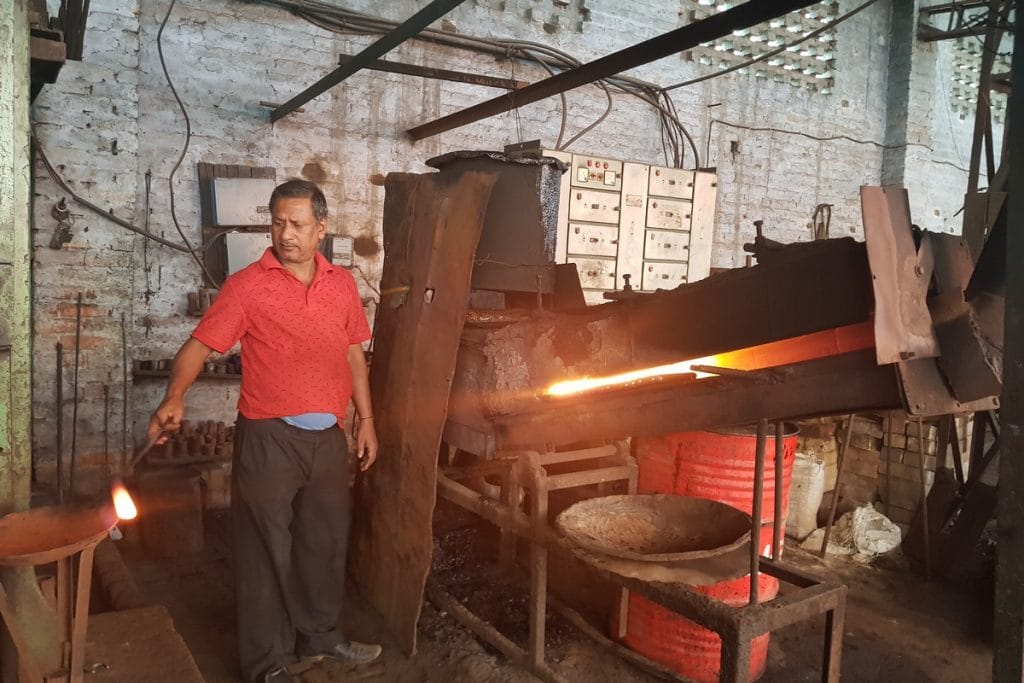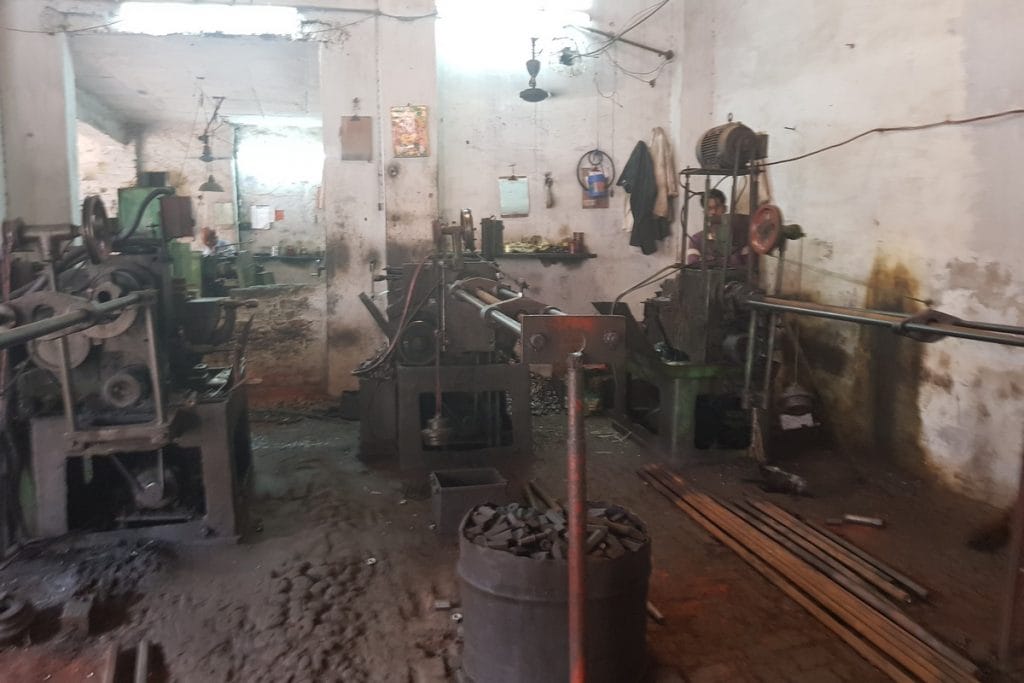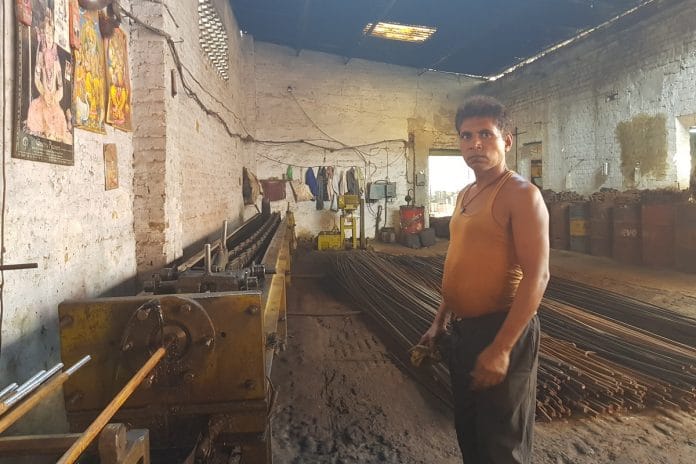Manufacturers of bicycle parts, auto parts and fasteners have been hit hard by drop in demand, rising costs, and problems in sourcing raw materials.
Ludhiana/Mohali: Nijam Bau has lived in Ludhiana for most of his young life. Now 40, he came here when he was barely 16 years old, and started working with Navyug Engineering in the Industrial Area.
The small factory, which manufactured bicycle parts, was his whole life. And over the years, with the industry flourishing, Nijam barely ever went on leave, barring a few weeks a year for festivals. He would rush to his home town of Motihari, Bihar, and be back sometimes even before his leave got over.
But this year, Nijam and two others in his factory have been on forced leave since July, and the way things are going, they will not be needed anymore. “I don’t think I am going to call them back. Let’s hope some miracle makes our business turn around,” says Inderjit Singh, proprietor of Navyug Engineering.
“We are ‘P-to-P’ factories: peon to proprietors. We are our own proprietors, managers, accountants and, when needed, even the labour,” says Inderjit.

His factory, like almost 5,000 similar small ventures in Ludhiana, is witnessing the worst downturn he has ever seen.
“In July and August, my business was down to 25 per cent, now it is around 40 per cent of what it was last year,” Inderjit says.
GST – the kiss of death
In Ludhiana, there are around 5,000 units that manufacture bicycle parts, 250 that make parts for scooters, and another 250 for trucks, buses, tractors and trailers. About 1,000 units manufacture fastners used in almost all types of machines. Put together, about four to five lakh workers are employed directly or indirectly in these units across Ludhiana.
The cycle and auto part industries were first hit hard by demonetisation, and then the imposition of the Goods and Services Tax.
The GST imposed on many auto parts is at the highest slab (28 per cent), while for nuts and bolts, the tax is 18 per cent. This has led to cancellation of orders, and business is down by an estimated 30 per cent. Almost 85 per cent of the units in Ludhiana – mostly small and medium scale – are affected.
It’s a similar situation in Mohali, the satellite town of Chandigarh. Rajiv Bajaj runs S.V. Engineering in Mohali that manufactures gears. He has around 20 men working for him, but owing to these cutbacks, he has had to retrench three workers in the last two months.

Bajaj says: “The GST on our products has been kept as high as 28 per cent. Smaller and medium entrepreneurs just cannot compete at these rates. We have scaled down our margins.”
The cost of raw materials, too, has gone up, leading to an increase in the working capital. The industry is also fraught with confusion regarding the ‘Harmonised System of Nomenclature’ (HSN) in auto parts. Cycle bells, locks, ball bearings, tyres, and plastic parts all are placed in different GST slabs.
The cost of the steel wire used by the nut-bolt manufacturers has increased following GST. “It was Rs 40 per kg before GST. All taxes were included. Now instead of revising it with the new tax included, it has been decreased by only a rupee. After adding the 18 per cent GST, the cost has increased to Rs 57 per kg,” says Rajinder Singh, president of the Small Scale Traders and Manufacturers Association, Ludhiana.
“There is no regulatory commission for steel, and as a result, whatever is decided by the rolling mills is what we have to accept,” he adds.
“The whole idea that those with less than Rs 20 lakh annual turnover are outside the GST bracket is a farce. If you are selling something which attracts GST, you are brought into the system. It could be job work or manufacturing, as is done by hundreds of units here at home.”
Such units are facing a double whammy, says Gurpargat Singh Kahlon, president of the Auto Parts Manufacturers’ Association of India. “Since small units do not have a GST number, the bigger units will not buy from them or get work done from them. That will kill the smaller units,” he says.
Kahlon, who runs an export unit of auto parts, is facing the heat himself. “Our order volume is down from Rs 1.3 crore a month to about Rs 80 lakh. Right now, we have not retrenched any employee, but we have stopped their overtime. There is not enough work,” he says.
Narinder Bhamra, president of the Fastners Manufacturers’ Association of India, says: “The government imposed a new thing with no thought of how it would be implemented. The server was down for four days, which delayed my filing my return. But I had to pay a penalty for that too.”
The industry is also hit by utter confusion while filing returns. “The GST rates for the same parts when used in different products differ. Fastners are covered both in chapter 73 and chapter 87, where different GST rates are applicable. How can a tiny entrepreneur resolve these things?” Kahlon wonders.
Bhamra sums up the situation with a dramatic warning: “Like you hear that farmers are committing suicide, very soon you will hear people say that manufacturers and traders are committing suicide.”







We Piyush Packers & Movers Ludhiana offer a lot of advantages while executing the moving services. Our entire processes are handled by our team of experts and support staff, who allow us to offer our clients with a list of advantages to choose from. Further, we offer our clients a range of pragmatic solutions for all their problems related to shifting. Our services do not end here; in fact, the perfect blend of technology and manpower has allowed us to meet the expectations of our clients. Whenever you want to shift in or out Ludhiana, consider only Piyush Packers & Movers . Call: +91-9216572657 More info Please visit: http://www.piyushpackersandmovers.com/
Modi’s regime wants this only, he decided to close all domestic production and create room to import. Already our indigenous jewellery workers starts suicide themselves, other move to security to jewllery marts. If we allow this government to continue he will sell India to others. Our selfish medias also playing a major part for sake of money.